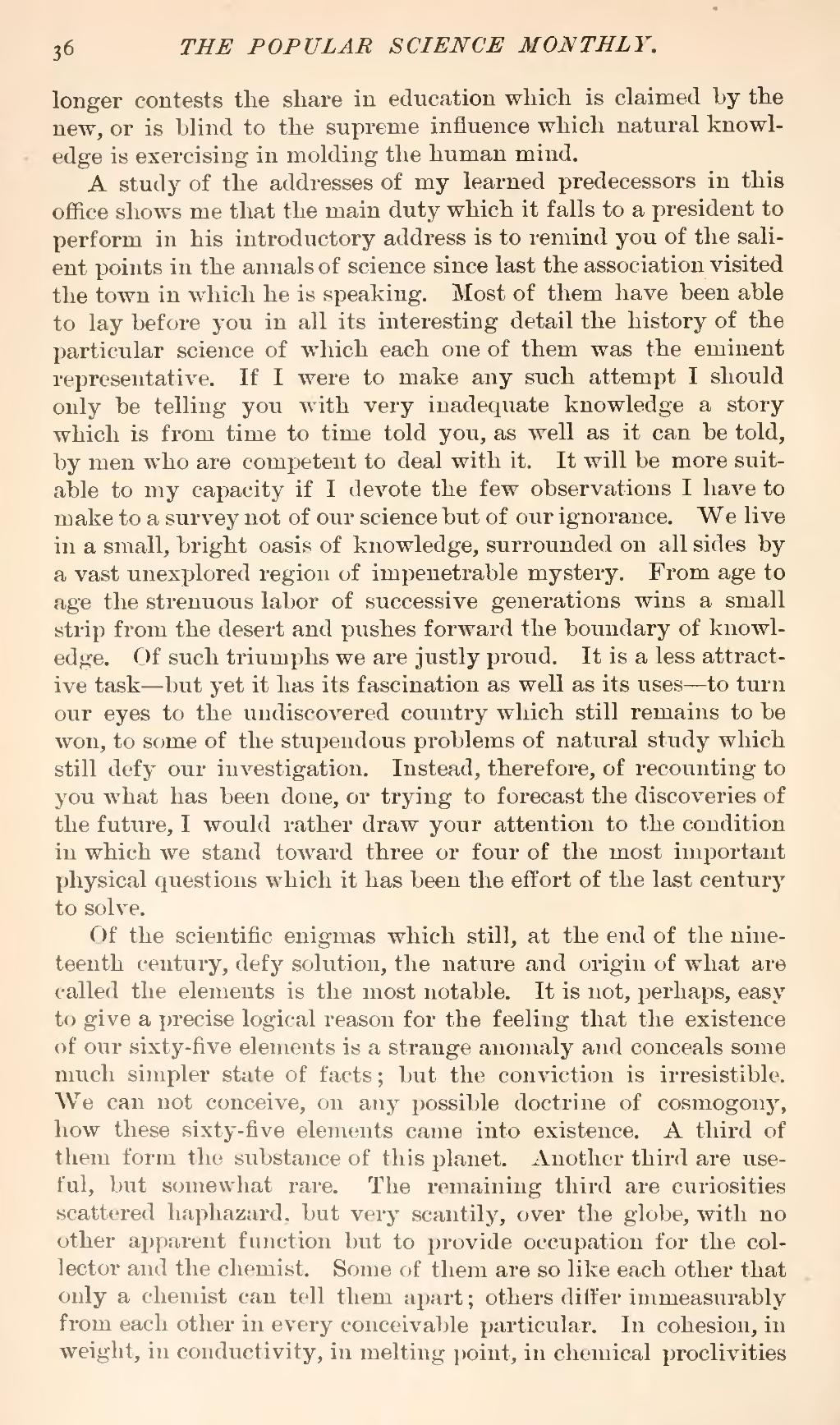longer contests the share in education which is claimed by the new, or is blind to the supreme influence which natural knowledge is exercising in molding the human mind.
A study of the addresses of my learned predecessors in this office shows me that the main duty which it falls to a president to perform in his introductory address is to remind you of the salient points in the annals of science since last the association visited the town in which he is speaking. Most of them have been able to lay before you in all its interesting detail the history of the particular science of which each one of them was the eminent representative. If I were to make any such attempt I should only be telling you with very inadequate knowledge a story which is from time to time told you, as well as it can be told, by men who are competent to deal with it. It will be more suitable to my capacity if I devote the few observations I have to make to a survey not of our science but of our ignorance. We live in a small, bright oasis of knowledge, surrounded on all sides by a vast unexplored region of impenetrable mystery. From age to age the strenuous labor of successive generations wins a small strip from the desert and pushes forward the boundary of knowledge. Of such triumphs we are justly proud. It is a less attractive task—but yet it has its fascination as well as its uses—to turn our eyes to the undiscovered country which still remains to be won, to some of the stupendous problems of natural study which still defy our investigation. Instead, therefore, of recounting to you what has been done, or trying to forecast the discoveries of the future, I would rather draw your attention to the condition in which we stand toward three or four of the most important physical questions which it has been the effort of the last century to solve.
Of the scientific enigmas which still, at the end of the nineteenth century, defy solution, the nature and origin of what are called the elements is the most notable. It is not, perhaps, easy to give a precise logical reason for the feeling that the existence of our sixty-five elements is a strange anomaly and conceals some much simpler state of facts; but the conviction is irresistible. We can not conceive, on any possible doctrine of cosmogony, how these sixty-five elements came into existence. A third of them form the substance of this planet. Another third are useful, but somewhat rare. The remaining third are curiosities scattered haphazard, but very scantily, over the globe, with no other apparent function but to provide occupation for the collector and the chemist. Some of them are so like each other that only a chemist can tell them apart; others differ immeasurably from each other in every conceivable particular. In cohesion, in weight, in conductivity, in melting point, in chemical proclivities
